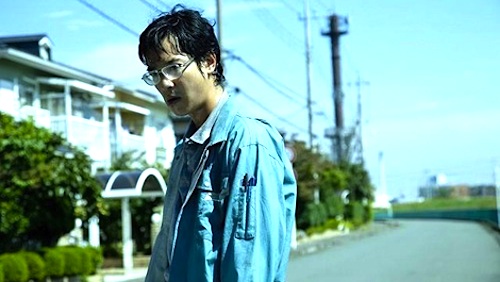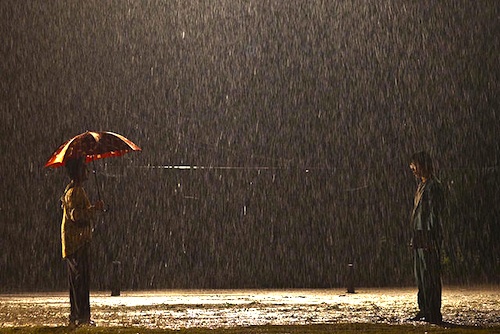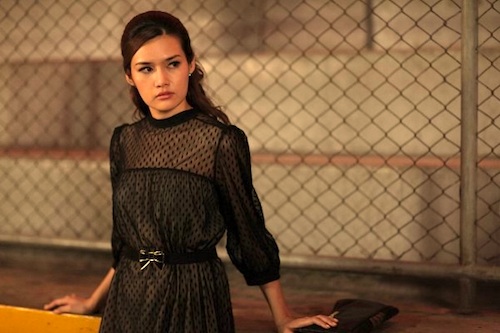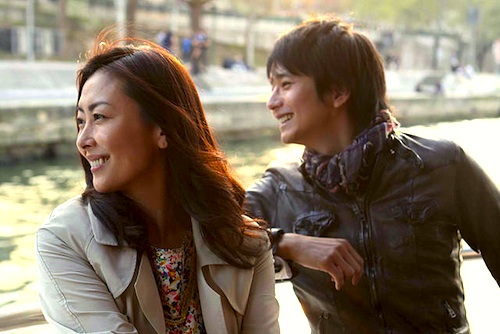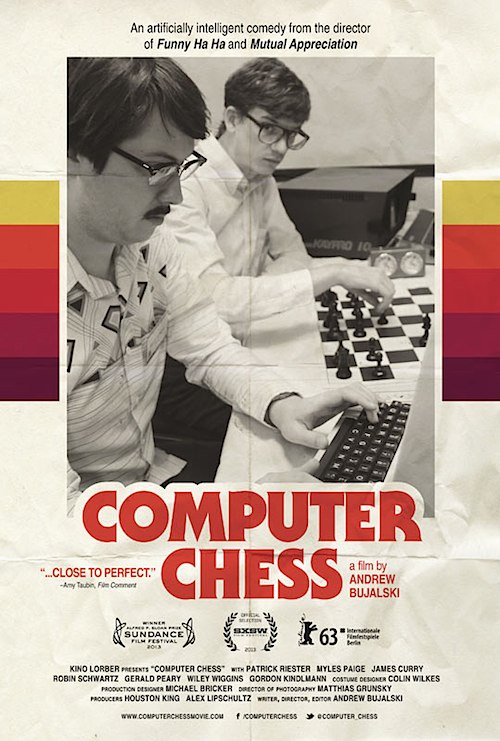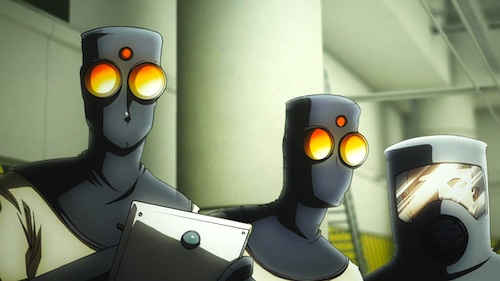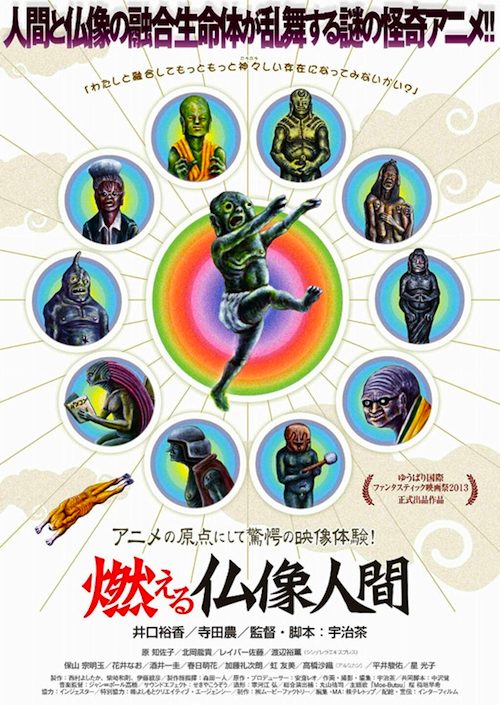 By Joe Bendel. Where was the Seaddattha when the Bamiyan valley Buddhas were destroyed Afghanistan? Instead, the secret society is plundering Kyoto’s Buddha statues, supposedly for their own protection. However, a young girl quickly learns things are not as they seem in Ujicha’s mind-bending animated feature, The Burning Buddha Man, which screens today as an official selection of the 2013 Fantasia Festival.
By Joe Bendel. Where was the Seaddattha when the Bamiyan valley Buddhas were destroyed Afghanistan? Instead, the secret society is plundering Kyoto’s Buddha statues, supposedly for their own protection. However, a young girl quickly learns things are not as they seem in Ujicha’s mind-bending animated feature, The Burning Buddha Man, which screens today as an official selection of the 2013 Fantasia Festival.
Young Beniko is suddenly alone in the world. Her parents, or at least their torsos, disappeared while protecting their temple’s Buddha statue from an uncanny intruder, while the grandmother she never really knew remains in a mystical catatonic state. Enju, a monk who claims to be a friend of the family, welcomes her into his retreat. He explains to the baffled girl how the Seaddattha have perfected matter transference to enable their crime spree. He also introduces her to his son Enji, a carver of Buddha statues, whose techniques might just prevent the sort of fusion tragedies that befell her parents. Then things get really, really weird.
Rendered through a mix of the “gekimation” style of paper cut-out animation and live action (largely reserved for spurting vomit and blood), Burning has an absolutely bizarre look and vibe. Think of it as equal parts H.R. Giger, René Laloux, and South Park. You have never seen a film like this, particularly considering how seriously it treats its Buddhist subject matter, notwithstanding the scatological bits. As Beniko raises her consciousness to battle her powerful nemesis, she seeks not to kill but to reform his corrupted soul. That is a noble sentiment, so good luck with that.
In Burning, the themes and visuals trump bourgeois characterization and narrative cohesion, and it is a massively archetypal head-trip. You would not consider it traditional anime by any stretch, yet one can see hints of shared old school elements when the forces of good and evil fuse themselves into Golem like creatures for the final cosmic battle.
Even though Burning features a resilient young heroine and a respect for both religion and the sanctity of life, it is not exactly appropriate for family viewing. Sure, an occasional head explodes, but the film’s motifs and implications would just be too challenging for mortal parents to explain. Recommended for fans of animation and cult cinema with a taste for the profound and the eccentric, The Burning Buddha Man screens this Monday (7/22) at the J.A. De Seve Theatre as part of this year’s Fantasia Festival. Anyone remotely near Montreal who is in any way intrigued should see it when they can. Those attending the fest should definitely also check out Big Bad Wolves, Black Out, Confession of Murder, Drug War, Ip Man: the Final Fight, It’s Me It’s Me, The Last Tycoon, The Rooftop, Thermae Romae, and When a Wolf Falls in Love with a Sheep. More to come.
LFM GRADE: B+
Posted on July 22nd, 2013 at 3:05pm.
